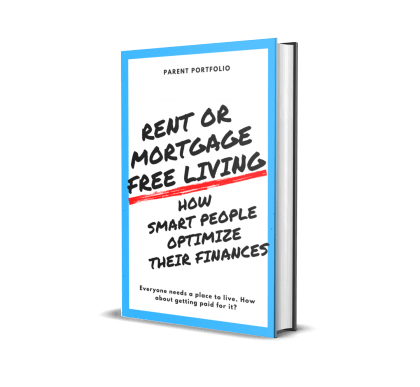What Does Estate Mean in Real Estate | 4 Things You Don’t Know Before

What does estate mean in real estate? If you’re one of the people who often ask this question, this article will benefit you. Everything that sums up an individual’s net worth, including all land and real estate, belongings, financial securities, money, and other assets that the individual owns or has a controlling interest in, is referred to as an estate.
The term estate sometimes gets used informally to describe all land and building on a large property. This is in addition to a farm or homestead or a notable family’s historic residence.
On the other hand, an estate refers to all of a person’s worth in a financial and legal sense. Real estate, art collections, antiques, investments, security, and other assets and rights fall under this category. It also gets used to refer to a person’s net worth in a broad sense. A person’s estate gets defined as their total assets minus any obligations in legal terms.
The worth of a person’s estate is significant in two situations: when the person declares bankruptcy and when the person dies. When a debtor puts in for bankruptcy, their estate gets evaluated to see which debts they can somewhat expect to pay.
Bankruptcy procedures include the same thorough legal examination of an estate when someone dies. When a person dies, their estate becomes quite essential. The process of arranging the inheritance of your estate is called estate planning. And it is perhaps the most critical planning of a person’s financial life.
In most cases, a person writes a will that describes the testator’s wishes to dispose of their assets after death. A beneficiary is a person who gets holdings due to an inheritance.
What Does Estate Mean in Real Estate

In real estate, an estate may refer to a variety of things. This includes the following:
Freehold estates
One of the essential aspects of a freehold estate is that it must involve real estate ownership. It also lasts an indefinite or undefined amount of time. This might be for an indefinite period or for the whole lifespan of the individual who owns the real estate. The two most common forms of freehold estates are fee and life estates.
Fee estates
There are many fee estates. The list that follows describes each of the ones you should be aware of for test reasons. “fee estate” is a catch-all term for unrestricted ownership rights subject to various restrictions.
This fee estate, also known as fee simple absolute or indefeasible fee, is the complete form of ownership, with no restrictions on ownership rights. The sole exception is if the property is subject to governmental or private limitations on what may get done with it.
Estate with a simple fee: This fee simple estate, also known as a fee simple defeasible estate, has several restrictions. The following are examples of eligible fee estates:
Fee simple antecedent condition: Ownership, also known as title, will not move from one person to another unless a particular requirement is satisfied in this scenario.
Following is a specific fee condition: This kind of estate is one in which the grantor has the right to recover the property if certain conditions aren’t satisfied after the title has gotten transferred to the next owner. The right of readmission refers to the ability to regain the property.
Simple determinable fee: In this case, the title stays with the new owner as long as all ownership criteria are satisfied.
Estates of life
A life estate gives a personal possession and local ownership of a property for the rest of their life. This is in addition to the life of another person. The significant distinction between a fee estate and a life estate is that the former has no time restriction while the latter does. The following are the two forms of life estates:
Ordinary life property: A practical life estate is one in which the estate interest lasts throughout the lifetime of the individual who receives the life estate.
Life estate or a different life: “Pour une autre vie” is a French phrase that means “for another life.” Unlike a traditional life estate, the duration of this life estate is for the lifetime of a third party rather than the individual who receives the life estate.
Some states have what is known as legal life estates, which are life estates constituted by state law in one form or another. Check to see whether your state has accepted any of these rights, and learn more about how they operate. The following are general descriptions of four frequent instances of legal life estates:
- A spouse’s entitlement to a one-half interest in real property acquired during a marriage is community property.
- Curtsey is a husband’s claim to share his wife’s real estate. After she dies and gives it to someone else in her will, this is still legal.
- Dower refers to a wife’s entitlement to share her husband’s real estate. After he dies, he gives it in his will to someone else.
- The family home gets protected from creditors under the homestead law during the owner’s lifetime.
Leasehold properties
Leasehold estates get called real estate interests because they grant the renter certain rights. This includes the right to exclusive ownership and use of the whole property or a part of it. This works as long as the owner keeps some control.
This includes the right to own the property, the right to collect rentals, and the right to sell it. However, when it comes to estates, there are two words to remember and whose interests they represent:
- The leasehold estate or interest: This is the real estate interest of the renter. Remember that the renter is the owner of the lease’s rights.
- The leased fee interest or estate: This is the real estate interest of the owner or landlord. Remember that the landlord holds the fee or title to the property.
How are Estates Handled?

Estates are generally always split among the deceased’s family members. Money transfer from one family generation to the next has entrenching income in certain social groups or families. Inheritance makes up a large share of overall wealth globally in the United States. It is one of the leading causes of chronic economic disparity (though there are, of course, many other factors).
Most governments compel persons in line for an inheritance to pay an inheritance tax (estate tax) on the estate, partly as a reaction to the stasis of wealth mobility as a consequence of heritage.
This tax may be very high, and the recipient may get forced to sell part of the inherited assets to cover the tax debt. In the United States, the estate tax often gets waived. This happens if the bulk of an estate gets bequeathed to a spouse or a charity.
Estate lawyers often get recommended for both the person preparing the will and the beneficiaries of an estate. Inheritance taxes are well-known for their complication and high cost.
In addition, getting a lawyer ensures that your legacy taxes get correctly paid. Several steps may get done throughout the writing process to reduce the amount of tax that one’s successors will have to pay, such as establishing trusts.
How to Make a Will
A will is a legal document that specifies how an individual’s property and, if applicable, custody of minor children should get handled after mortality. The paper describes the individual’s desires and designates a trustee or executor whom they trust to carry out their wishes. They will also specify whether a trust should get established following the testator’s death.
A trust may be established during the estate owner’s lifetime (living trust) or after their death (death trust), depending on their wishes (testamentary trust). A legal procedure called probate gets used to determine the validity of a will.
The first stage in managing a dead person’s estate and distributing assets to beneficiaries is to file for probate. When a person dies, the will’s custodian must deliver the will to the probate court or the executor appointed in the will within 30 days of the testator’s death. However, it varies by jurisdiction; for example, a will must be submitted within ten days of the death being announced in Florida.
The probate process is a jury method in which the validity of the deceased’s will is established and recognized as their final will. The court appoints the executor listed in the will. As a result, the executor has the legal authority to act on behalf of the dead.
Frequently Asked Questions
What does estate mean in real estate?
In real estate, the estate may refer to a variety of things. These have already gotten mentioned above.
Is there a distinction between real estate and property?
The phrase “real estate” refers to the actual land, buildings, and resources that come with it. The physical property of the real estate gets included in real property, but it also contains a bundle of ownership and uses rights.
Are bank accounts included in a will?
Yes. In most cases, the money in your bank accounts becomes part of your estate after you die.
What are land estates?
Land estates are a person’s legal rights or interest in a piece of land. The interest in land must become possessory to get termed an estate inland.
Conclusion
In conclusion, real estate provides excellent investment opportunities for many people. And if you need more explanation on “what does estate mean in real estate,” the tips above will aid you immensely.






